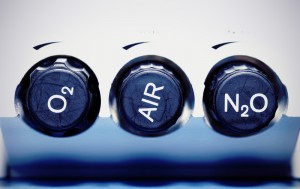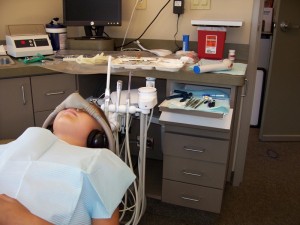How Can Dental Anesthesia Help You?
Do you fear the dentist because of the thought of shots and drills? If so, you are not alone. Up to 16% of American adults fear going to the dentist. However, there are many dental anesthesia options available to patients now that can make their dental visit quite enjoyable. Patients can be put completely under, can use laughing gas, oral sedatives and more. Find out how dental anesthesia can help you!
Dental Phobias
It’s no secret that many people aren’t fond of shots and drills that are found in dental offices. Many services don’t even use those shots and drills, such as a patient’s comprehensive exams and dental cleanings. However, it’s still what people think of when they think about visiting the dentist. Sometimes, negative experiences growing up or simply fearing shots in the first place (even if you don’t get any), can be enough to keep patients from going to their biannual visits. If you have dental phobias, you’re not alone.
- On average, about 9-16% of people fear going to the dentist. In America alone, that is between 30 and 40 million people any given year.
- Because of this, those people tend to skip any and all dental visits—even the check-ups that could prevent dental work in the future that actually require shots or drills.
- In a Colgate report, they found that polls reported about 36% of people skip seeing the dentist due to dental phobias or fears. That percentage (reported in Europe) is a bit higher than the United States, but is much too high for patients who really need dental work done.
Many people think that people should simply face their fears when it comes to the dentist. However, when it comes to phobias, it’s more than just anxiety. Patients with phobias have feelings of dread, panic and intense fear going near a dental office. They may even be physically sick waiting for an appointment. It’s more than just anxiety, even if the phobia is unfounded based on previous dental experiences. No matter the reason for the phobia, patients who skip going to the dentist are often the ones that find themselves with tooth decay, gum disease, eroded and discolored teeth and oral health problems.
Dental Anesthesia Can Help Patients
So what can be done? Over the years, as dental phobias and fears grew, dental technology also grew. Now, there are many dental anesthesia options that have been developed to help patients young and old with their dental work. Some of the dental anesthesia options focus on controlling pain while others focus on relaxing patients or helping them to sleep during dental work. Each patient will be different depending on their anxiety levels, their age, and what type of work they need done.
For dental checkups and exams, a patient may only need dental anesthesia that helps them to relax, as no internal tooth or gum work is being done. For more extensive procedures that seek to treat oral health diseases, local anesthesia and even IV sedation can be used. The goal of both of these types of dental anesthesia is to help block the nerves in the area that transmit pain. When those nerves are blocked, a patient won’t feel pain in the area getting worked on because the nerves are numb for a time.
Your Options
You have several options to choose from with dental anesthesia:
- Laughing Gas: This is a great option for children and even adults who want to relax during a procedure. The gas is nitrous oxide and oxygen, which are both safe for causing a sedative effect in patients. Patients stay awake throughout the procedure, but feel more at-ease, light, calm and comfortable.
- Oral Sedation: Before any procedure is started, patients can take medication by mouth that will relax them. These sedatives keep the patient awake, but the patient generally does not remember their dental procedure. Patients maintain a level of consciousness to converse with the dentist and others, but don’t have to remember the actual work being done in their mouth.
- Local Anesthetic: This is actually a shot given to patients in the area where dental work is done. If you don’t fear the shot, but you do fear pain, we always numb the area first with Orajel or a similar gel so that patients don’t feel the shot. Many patients don’t realize that the strange sensation of pain they sometimes feel is not actually the shot, but the tingling sensation of the medicine spreading throughout their mouth tissues.
- IV Sedation: If you really just hate dental work and don’t want to have anxiety sitting a dental chair throughout your procedure, there is an IV sedation option. This option will put you out completely during the entire procedure. You simply sleep until your procedure is over, which is very beneficial for patients needing extensive work done.
Restore Your Relationship with Dentistry
There are incredible dentists all over the United States who want to help patients stay as healthy as possible. The health of a person’s mouth can determine much about their overall health. The American Dental Association recommends that every person visit the dentist for their comprehensive dental exams and dental check-ups every 6 months. These are easy and straightforward services where patients won’t get shots and drills. If nothing else, make it a goal to go to these appointments. Even if you have dental phobias, these exams and cleanings can help you to stay decay- and disease-free so you never need services that are more in-depth.
Dental phobias are real and can be hard to overcome. However, dental anesthesia can help you to be able to be at the dental office and to get through any service. They were designed specifically to make a patient’s experience enjoyable. Start now to restore your relationship with how you view dentistry by trying out dental anesthesia. For your questions about the dental anesthesia options we can provide you for your specific needs, call Dr. Evanson’s office today at (720) 409-0008!
Leave a reply →








